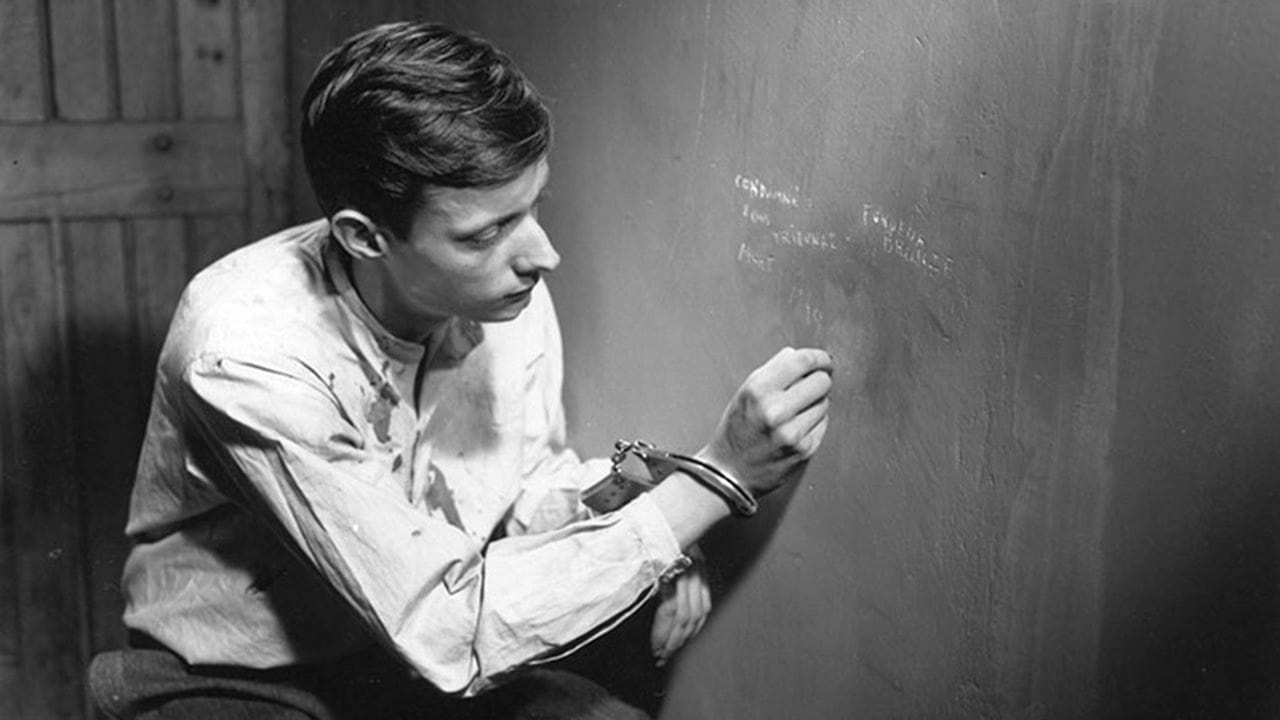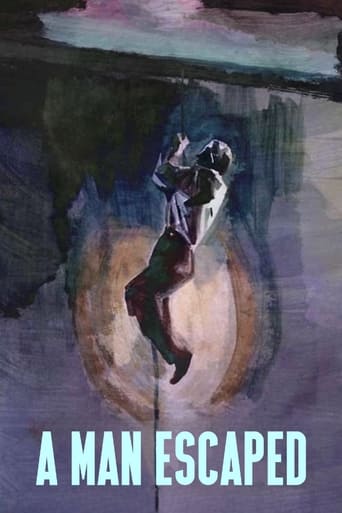

Gem of a foreign film very well acted out to the point where we are part of the movie something few movies can do just right. This one nails it as you watch a man imprisoned and all the suffering that goes with it comes to terms with his situation and then some. That is what draws you in. Its called a role reversal. Would you have done this? Could you have done this? What would you do? Even the other prisoners in the movie doubt and question it. Man cannot be confined and liberty must be his no matter what the circumstances. America was founded on this principal. Here we see the concept acted out from a prisoners point of view. Add to it there are Nazis (injustice) and pending death and suffering and you get it all with this movie. Watch this with no interruptions or distractions if you want maximum viewing pleasure. Look forward to the ending which takes its time drawing you in even deeper and then the grand finale which gives good closure. Get ready to...
... View MoreI hit an impasse with Bresson's previous film, Diary; he used a peculiar conflation of a search for transparent truth in the mysteries of life with anguish and dejection as romanticized spiritual journey, romanticized in the Christian sense where it's not spiritual if it doesn't have anguish. It seemed crude and without enlightenment. The impasse was; was the pious young priest for Bresson another person among others in the village led astray in the effort to rationalize his emotions, or was he above them, an ideal to aspire to? This was more interesting to me than the film itself.So I came to this hoping for the fresh light of retrospect. And what a stark contrast this is! Another idealistic young man who suffers torments, physical and inner, another life of anguish in four walls. But here Bresson draws the breath in, quiets the anguish, accepts the fact of it, and works to concentrate the senses and create physical presence. We've come far in our ability to do this, but it still resonates.The film is practically a long suspense piece, with a few questions about ethics suspended briefly. The man here, by contrast to the priest, simply does the work he sets out before him. He doesn't perceive himself a martyr of his cause, or a quiet sufferer of wrongs, he simply abides and prepares for the long night. His idealism waits to be found out until near the end when the charges against him are laid out; sabotage.It's fine work, easy to parse. It doesn't answer the impasse mentioned above so for that I'll have to go to his next one.
... View MoreJean Luc-Godard once said "Robert Bresson is French cinema, as Dostoevsky is the Russian novel and Mozart is the German music". Why, then, are Bresson's films so relatively neglected outside his native France? Perhaps the answer can be found in Bresson's philosophy of employing mainly non-professional actors, or his conscious choice to use lots of naturalistic sound in his films rather than hiring composers to pour dramatic scoring over the action. Whatever the explanation, Bresson's films are well worth seeking out. Arguably the best of all – and the one most likely to hook newcomers to the director's work – is Un condamné à mort s'est échappé ou Le vent soufflé où il veut, known in English-speaking countries simply as A Man Escaped. It is an incredible film, viewable on one level as a taut escape story but equally viewable as a metaphorical story of hope and salvation.Fontaine (François Leterrier) is a member of the French Resistance during WWII. Captured by the Nazis, he is taken to the notorious prison of Fort Montluc near Lyon. After attempting to escape in transit, only to be recaptured, Fontaine is soon incarcerated at Montluc on the first floor of the jail. He is confined to his cell but also handcuffed for good measure. Later he is moved up to the top floor of the jail, considered so inescapable that there is no longer any need for his handcuffs, which are promptly removed. Fontaine gradually establishes that the cell doors are made of sub-standard wood and manages to steal an iron spoon one meal-time which he uses to painstakingly dismantle the door, putting it back together as he goes to prevent his escape plans from being detected. When Fontaine learns that he is soon to be executed, his need to escape becomes more urgent than ever. The plan is jeopardised when a new prisoner is moved into the same cell – a young German deserter named François Jost (Charles Le Clainche). Fontaine is unsure whether he can trust Jost and faces a terrible dilemma should he tell the young man about his planned escape and risk failure, or kill him to ensure secrecy (and in so doing sacrifice his moral dignity)?Based on the true memoirs of P.O.W. Andre Devigny, A Man Escaped is brilliantly tense throughout. Much of the film passes wordlessly, capturing the methodical perseverance with which Fonatine works on his escape, emphasising the aching silence within the jail so as to make every scratch of Fontaine's spoon a potentially fatal giveaway sound. No film has ever used silence to generate such tension, but Bresson does it magnificently – there are moments where you almost feel the hero's heartbeat might be loud enough to scupper his plan. The excitement is almost unbearable and, better still, is sustained for long segments of the film. Léonce-Henri Burel's cinematography is excellent throughout, capturing a sparse and desolate atmosphere which seems to emanate from the prison wall itself. The performances are remarkable too – even more so considering that the leads are all non-professionals – with Leterrier in particular commanding attention as the grimly determined Fontaine. A Man Escaped is a masterpiece – one of the greatest French films of all- time, one of the greatest prison break films of all-time and one of the greatest hope-in-the-face-of-adversity films of all-time. The sooner it is rediscovered by modern audiences, the better.
... View More"A Man Escaped" is a 1956 French film by Robert Bresson, starring Francois Leterrier and Charles Le Clianche. It's the story of a resistance member, Fontaine (Leterrier) who is imprisoned by the Nazis. He spends all of his time plotting a detailed escape, using items like a spoon, clothing, lantern hooks, whatever he can get his hands on that will help him in his quest. Still, even when Fontaine has it all worked out, he hesitates to go for it. Then he learns that he is to be executed. If that isn't bad enough, he gets a roommate, Jost (Le Clianche). Fontaine has to escape quickly now, but supposing his new cell mate is an informant? Should he take him along...or kill him? This may be the most nerve-wracking movie I've ever seen. It's absolutely agonizing. I kept saying out loud, go already! I was a wreck for this man. The film is done so painstakingly, with the character of Fontaine narrating.Leterrier, with his thin face and haunted look, essays the role of Fontaine perfectly. As his cell mate, Le Clianche is excellent, a young man whose motives can't initially be read.Very tense, very suspenseful, you'll find it hard to breathe or swallow. Highly recommended for a totally involving experience from one of the French post-war masters, Robert Bresson.
... View More